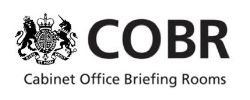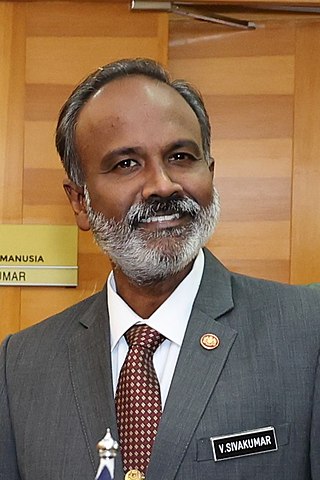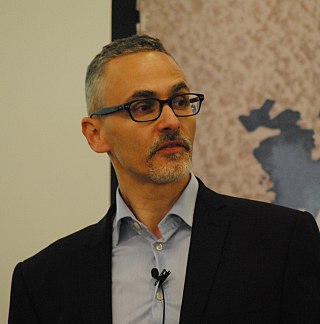Related Research Articles

The Foreign, Commonwealth & Development Office (FCDO) is a department of the Government of the United Kingdom. Equivalent to other countries' ministries of foreign affairs, it was created on 2 September 2020 through the merger of the Foreign & Commonwealth Office (FCO) and the Department for International Development (DFID). The FCO was itself created in 1968 by the merger of the Foreign Office (FO) and the Commonwealth Office. The department in its various forms is responsible for representing and promoting British interests worldwide.

The Civil Service is the permanent bureaucracy or secretariat of Crown employees that supports His Majesty's Government, which is led by a cabinet of ministers chosen by the Prime Minister of the United Kingdom of Great Britain and Northern Ireland.

The Cabinet Office Briefing Rooms (COBR) are meeting rooms in the Cabinet Office in London. These rooms are used for committees which co-ordinate the actions of government bodies in response to national or regional crises, or during overseas events with major implications for the UK. It is popularly referred to as COBRA.
The Civil Contingencies Secretariat (CCS), created in July 2001, is the executive department of the British Cabinet Office responsible for emergency planning in the UK. The role of the secretariat is to ensure the United Kingdom's resilience against disruptive challenge, and to do this by working with others to anticipate, assess, prevent, prepare, respond and recover. Until its creation in 2001, emergency planning in Britain was the responsibility of the Home Office. The CCS also supports the Civil Contingencies Committee, also known as COBR.

The British government is directed by the Cabinet, a group of senior government ministers led by the Prime Minister. Most of the day-to-day work of the Cabinet is carried out by Cabinet committees, rather than by the full Cabinet. Each committee has its own area of responsibility, and their decisions are binding on the entire Cabinet.

Andrzej Zbigniew Lepper was a Polish politician, Deputy Prime Minister, Minister of Agriculture, and the leader of Self-Defence of the Republic of Poland political party.

The first minister of Scotland is the head of the Scottish Government and is the keeper of the Great Seal of Scotland. The first minister chairs the Scottish Cabinet and is primarily responsible for the formulation, development and presentation of Scottish Government policy. Additional functions of the first minister include promoting and representing Scotland in an official capacity, at home and abroad.

The Cabinet Office is a department of the UK Government responsible for supporting the prime minister and Cabinet. It is composed of various units that support Cabinet committees and coordinate the delivery of government objectives via other departments. As of December 2021, it had over 10,200 staff, mostly civil servants, some of whom work in Whitehall. Staff working in the Prime Minister's Office are part of the Cabinet Office.

Francis Anthony Aylmer Maude, Baron Maude of Horsham, is a British Conservative Party politician who served as Minister for the Cabinet Office and Paymaster General from 2010 to 2015. He also served in several posts while the Conservatives were in opposition, notably as Shadow Chancellor of the Exchequer, Shadow Foreign Secretary and Chairman of the Conservative Party. Maude was Member of Parliament (MP) for North Warwickshire from 1983 to 1992 and then for Horsham from 1997 to 2015.

The Civil Contingencies Act 2004 (c. 36) is an act of the Parliament of the United Kingdom that makes provision about civil contingencies. It also replaces former civil defence and emergency powers legislation of the 20th century.

The office of Downing Street Chief of Staff is the most senior political appointee in the Office of the Prime Minister of the United Kingdom, acting as a senior aide to the Prime Minister of the United Kingdom. The holder of the office retains a highly powerful, non-ministerial position within His Majesty's Government.

The Department for Levelling Up, Housing and Communities (DLUHC), formerly the Ministry for Housing, Communities, and Local Government (MHCLG), is a department of His Majesty's Government responsible for housing, communities, and local government in England and the levelling up policy. It was established in May 2006 and is the successor to the Office of the Deputy Prime Minister, established in 2001. The department shares its headquarters building, at 2 Marsham Street in London, with the Home Office. It was renamed to add Housing to its title, changed to a ministry in January 2018, and later reverted to a government department in the 2021 reshuffle.

The fire services in the United Kingdom operate under separate legislative and administrative arrangements in England and Wales, Northern Ireland, and Scotland.

The Scottish Government Resilience Room (SGoRR) is the emergency and crisis response co–ordination facility of the Scottish Government that is activated in cases of national emergency or crisis, or during events abroad with major implications for Scotland and the wider British Isles. It is located in Scotland's capital city and seat of power, Edinburgh, at St Andrew's House, the official headquarters of the Scottish Government. Prior to February 2008, it was called the Scottish Government Emergency Room, or "SEER", from the former name "Scottish Executive Emergency Room".

Sivakumar s/o Varatharaju Naidu, better known as V. Sivakumar, is a Malaysian politician who has served as the Member of Parliament (MP) for Batu Gajah since May 2013. He served as the Minister of Human Resources in the Unity Government administration under Prime Minister Anwar Ibrahim from December 2022 to December 2023 and Member of the Perak State Legislative Assembly (MLA) for Tronoh from March 2008 to May 2013. He also served as Speaker of the assembly from April 2008 to May 2009. He is a member of the Democratic Action Party (DAP), a component party of the Pakatan Harapan (PH) and formerly Pakatan Rakyat (PR) opposition coalitions. He has also served as the Deputy Secretary-General of DAP since November 2017. He was also the sole Cabinet minister of the Indian ethnicity prior to the 2023 cabinet reshuffle.
Waqar Azmi is listed in the world's 500 most influential Muslims by Georgetown University, as well as the Asian power 100 list of the most influential Asians in the UK and, the Muslim power 100 List of the most influential Muslims in the UK. He is UK Government's former Chief Diversity Adviser at the Cabinet Office and EU Ambassador of Intercultural Dialogue. He is founder & chairman of Remembering Srebrenica.

Jeremy John Heywood, Baron Heywood of Whitehall, was a British civil servant who served as Cabinet Secretary to David Cameron and Theresa May from 2012 to 2018 and Head of the Home Civil Service from 2014 to 2018. He served as the Principal Private Secretary to Prime Ministers Tony Blair and Gordon Brown from 1999 to 2003 and 2008 to 2010. He also served as Downing Street Chief of Staff and the first Downing Street Permanent Secretary. After he was diagnosed with lung cancer, he took a leave of absence from June 2018, and retired on health grounds on 24 October 2018, receiving a life peerage; he died a fortnight later on 4 November 2018.

Luther Pendragon is a London and New York-based public relations and communications agency.

David Solomon Halpern is a British civil servant, heading the Behavioural Insights Team spun out from the Cabinet Office.
Operation Yellowhammer was the codename used by the British HM Treasury for cross-government civil contingency planning for the possibility of Brexit without a withdrawal agreement – a no-deal Brexit. Had the UK and EU failed to conclude such an agreement, the UK's unilateral departure from the EU could have disrupted, for an unknown duration, many aspects of the relationship between the UK and European Union, including financial transfers, movement of people, trade, customs and other regulations. Operation Yellowhammer was intended to mitigate, within the UK, some of the effects of this disruption, and was expected to run for approximately three months. It was developed by the Civil Contingencies Secretariat (CCS), a department of the Cabinet Office responsible for emergency planning.
References
- 1 2 3 4 5 6 7 8 "The Speaker's spokesman: Mike Granatt". Daily Telegraph. 25 February 2008. Archived from the original on 29 November 2010. Retrieved 16 February 2010.
- 1 2 3 4 5 6 7 8 9 10 Lepper, Joe (14 November 2003). "PROFILE: Mike Granatt, Luther Pendragon – Strategic player who will say No, Minister". PR Week. Retrieved 16 February 2010.
- ↑ "Memorable OWCs". Old Westminster Citizen's Association. Retrieved 16 February 2010.
- 1 2 Sengupta, Kim (12 September 1997). "Whitehall's 'Ministry of Truth' to rival Millbank machine" . The Independent. Archived from the original on 14 May 2022. Retrieved 16 February 2010.
- ↑ "Report attacks Govt's 'wasteful' ad strategy". Campaign. 5 March 1999. Retrieved 16 February 2010.
- ↑ Brogan, Benedict (16 April 2001). "Whitehall told to do what it does best: be boring". Daily Telegraph. Retrieved 16 February 2010.
- ↑ Teather, David; Rory Carroll and Jane Martinson (3 January 2000). "Chaos theory proves unfounded – for now". The Guardian. Retrieved 16 February 2010.
- ↑ Poole, Elizabeth; John E. Richardson (2006). Muslims and the news media. I.B. Tauris. ISBN 1-84511-172-9.
- 1 2 Sylvester, Rachel (11 July 2001). "Blair forms emergency unit after debacles". Daily Telegraph. Retrieved 16 February 2010.
- ↑ Hall, Ian; Joe Lepper (4 September 2003). "Granatt quits Govt as Phillis scraps his role". PR Week. Retrieved 16 February 2010.
- ↑ "Who we are – Mike Granatt". Luther Pendragon. Archived from the original on 22 January 2010. Retrieved 16 February 2010.
- ↑ Oliver, Jonathan (24 February 2008). "Top aide Mike Granatt quits over Speaker Michael Martin's expenses". The Sunday Times. Retrieved 16 February 2010.
- ↑ Black, Alex (21 September 2006). "BBC's new governors set to use Luther Pendragon". PR Week. Retrieved 16 February 2010.
- ↑ "Beware of Bogus Media ID Warns Press Card Authority". The Newspaper Society. 16 June 2005. Retrieved 16 February 2010.
- ↑ Day, Julia (5 July 2002). "Government communications chief honoured at PR awards". The Guardian. Retrieved 16 February 2010.
- ↑ Granatt, Mike; Patrik Lagadec (2005). "Ethics for media commentators" (PDF). Crisis Response Journal. 2 (1).
- ↑ "Luther Pendragon Ltd: Code of Professional Practice" (PDF). September 2007. Archived from the original (PDF) on 19 February 2009. Retrieved 17 February 2010.
- ↑ "Lobbying: Access and Influence in Whitehall, First Report of Session 2008–09, Volume II Oral and written evidence" (PDF). House of Commons Public Administration Select Committee. 9 December 2008. Retrieved 17 February 2010.
- ↑ "Community Resilience UK – National Advisor". Community Resilience UK. Archived from the original on 10 September 2012. Retrieved 16 March 2012.